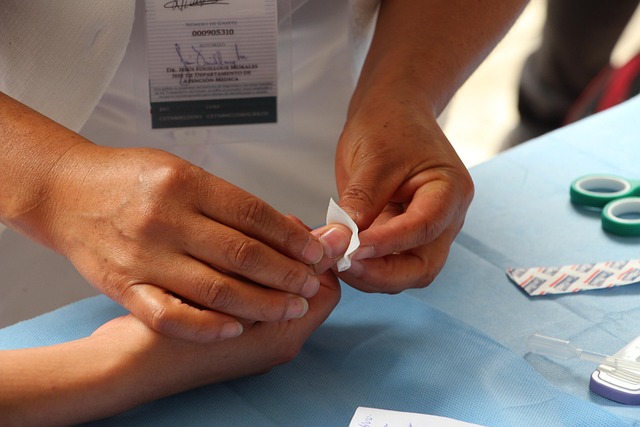Heart Valve Replacement: Procedure, Recovery, and Treatment Options
Heart valve disease is a serious condition that can impact the overall function of the heart. For those with a damaged or diseased heart valve, heart valve replacement is often necessary to restore proper blood flow and improve heart health. This article provides an overview of heart valve replacement procedures, recovery expectations, and details on leaky heart valves, as well as information about mechanical heart valves.

What is the Heart Valve Replacement Procedure?
The heart valve replacement procedure is a complex surgical operation that involves removing a faulty heart valve and replacing it with an artificial one. This procedure can be performed through traditional open-heart surgery or minimally invasive techniques, depending on the patient’s condition and the surgeon’s recommendation.
During open-heart surgery, the chest is opened, and the heart is temporarily stopped while connected to a heart-lung machine. The surgeon then removes the damaged valve and carefully sutures the new valve into place. Minimally invasive procedures, on the other hand, involve smaller incisions and may use specialized tools and imaging techniques to guide the replacement.
What Can You Expect During Heart Valve Replacement Recovery?
Recovery after heart valve replacement surgery is a gradual process that requires patience and dedication. Immediately following the procedure, patients are typically moved to the intensive care unit (ICU) for close monitoring. Once stable, they are transferred to a regular hospital room for further recovery.
The initial recovery period in the hospital usually lasts about a week, during which patients receive pain management, respiratory therapy, and early mobilization exercises. After discharge, patients are advised to follow a structured rehabilitation program, which may include cardiac rehabilitation sessions, gradual increase in physical activities, and regular follow-up appointments with their healthcare team.
Full recovery can take several weeks to months, depending on the individual’s overall health and the type of surgery performed. Patients are often able to return to normal activities within 4-6 weeks, but strenuous activities may need to be avoided for a longer period.
What Are the Treatment Options for a Leaky Heart Valve?
A leaky heart valve, also known as valve regurgitation, occurs when the valve doesn’t close properly, allowing blood to flow backward. Treatment options for this condition depend on the severity of the leak and the patient’s overall health.
For mild cases, watchful waiting with regular monitoring may be recommended. Medications can help manage symptoms and prevent complications. In more severe cases, surgical repair or replacement of the valve may be necessary.
Valve repair techniques include:
-
Annuloplasty: Tightening or reinforcing the valve ring
-
Valvuloplasty: Reshaping the valve leaflets
-
Patching: Closing holes or tears in the valve
When repair is not feasible, valve replacement becomes the primary option. The choice between mechanical and biological valves depends on various factors, including the patient’s age and ability to take blood-thinning medications.
What Are the Pros and Cons of Mechanical Heart Valves?
Mechanical heart valves are durable artificial valves made from carbon and metal. Understanding their advantages and disadvantages is crucial for patients considering this option.
Pros of mechanical heart valves:
-
Longevity: They can last a lifetime, potentially eliminating the need for future replacements.
-
Durability: These valves are highly resistant to wear and tear.
-
Consistent performance: They maintain their function over time without deterioration.
Cons of mechanical heart valves:
-
Lifelong anticoagulation: Patients require blood-thinning medications to prevent clots.
-
Increased bleeding risk: The use of anticoagulants can lead to a higher risk of bleeding complications.
-
Audible clicking sound: Some patients may hear a faint clicking noise from the valve.
-
Lifestyle adjustments: Regular blood tests and dietary restrictions may be necessary.
How Do Biological Heart Valves Compare to Mechanical Ones?
Biological heart valves, also known as tissue valves, are made from animal or human tissue. They offer an alternative to mechanical valves with different characteristics.
| Aspect | Mechanical Valves | Biological Valves |
|---|---|---|
| Durability | Lifetime | 10-20 years on average |
| Anticoagulation | Required lifelong | Usually not required long-term |
| Bleeding Risk | Higher | Lower |
| Reoperation Risk | Lower | Higher due to eventual wear |
| Suitable Age Group | Younger patients | Older patients (typically 65+) |
| Sound | May produce clicking | Silent |
Prices, rates, or cost estimates mentioned in this article are based on the latest available information but may change over time. Independent research is advised before making financial decisions.
The choice between mechanical and biological valves depends on individual patient factors, including age, lifestyle, and medical history. Consultation with a cardiologist and cardiac surgeon is essential to determine the most appropriate option for each patient.
In conclusion, heart valve replacement is a life-saving procedure for those suffering from severe heart valve disease. Understanding the procedure, recovery process, and available options empowers patients to make informed decisions about their treatment. Whether opting for a mechanical or biological valve, the goal remains the same: to improve heart function and enhance quality of life.
This article is for informational purposes only and should not be considered medical advice. Please consult a qualified healthcare professional for personalized guidance and treatment.




